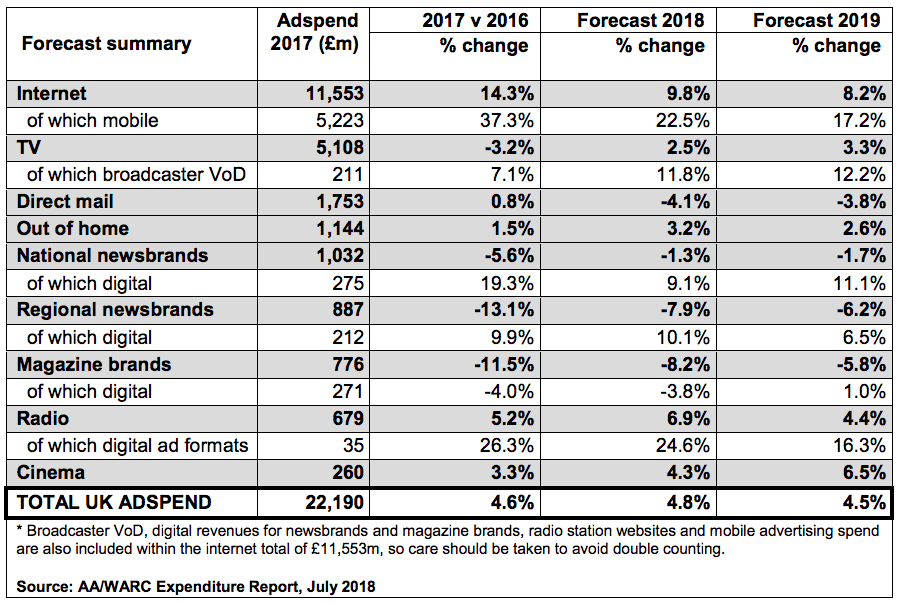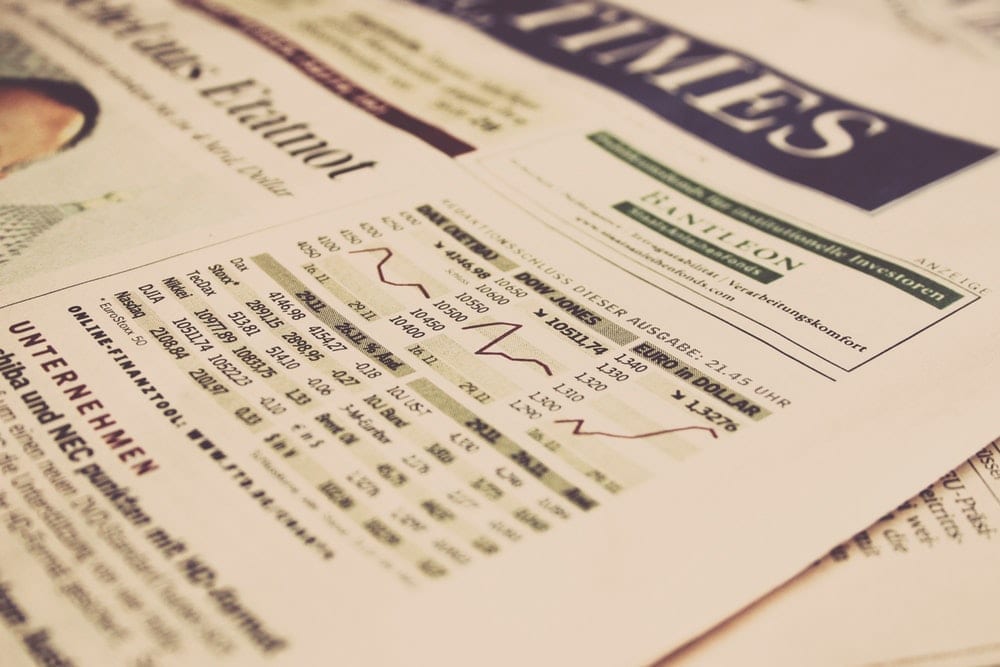|
Getting your Trinity Audio player ready...
|
The latest Advertising Association/WARC Expenditure Report is just out, and it comes with welcome news.
Print display ad revenue for national UK newspapers has gone up for the first time in seven years, reversing a trend of decline since 2011. The last time any growth was recorded was in the last quarter of 2010.
Advertiser backlash against tech companies like Facebook and Google has been cited as one of the factors in this spending reversal.
The growth was delivered by advertisers targeting popular publications like the Sun, Daily Mirror, Daily Mail, Daily Express and Metro, whose combined print display advertising went up 2.8% in the first quarter to £77.8m. Print display advertising in the Times, Telegraph, Financial Times and Guardian also saw the best quarterly performance in seven years.
There is a renewed optimism and verve sweeping through the publishing market for the first time in many years.
“There is a renewed optimism and verve sweeping through the publishing market for the first time in many years,” said Adam Crow, the head of publishing investment at WPP-owned media agency MediaCom. “The market is a hive of activity from an advertiser investment perspective.”
Display formats, which account for just under two-thirds of all adspend in the UK, recorded a rise in investment of 4.7% in Q1 2018 – on a par with the rate recorded in the final quarter of 2017. Excluding direct mail, spend on display formats rose 6.0%. This was the strongest sector growth since the final quarter of 2015.
“Our latest advertising expenditure figures reflect the resilience of the wider UK economy, where consumer confidence is improved and the jobs market remains very strong. UK advertising continues to show steady growth with more businesses investing more spend in advertising,” said Stephen Woodford, Chief Executive at the Advertising Association.
“This investment boosts company profits and overall GDP, creates more jobs and helps our media sector to continue to invest in the creative content and technology that the public values.”
Key findings in the report published by the Advertising Association and ad intelligence agency WARC also indicate that Q1 2018 was the strongest first quarter in three years, and radio (+12.5%) recorded its strongest growth in four years, while internet (+10.8%), out of home (+5.3%) and TV (+5.0%) were all positive during the quarter.
“The UK’s advertising market has now grown ahead of expectations in each of the last four quarters, and our projection for 2018 growth has been upgraded by a two percentage points since the start of the year on the back of sterling results across the media landscape,” commented James McDonald, Data Editor at WARC.
Online ad formats – particularly search and social media – continue to over perform, but traditional media are also proving their worth to advertisers.
“Notable among these are radio, TV, out of home and national newsbrands, with the latter carrying on from a good final quarter in 2017 to reverse a seven-year downturn in display revenue.”
Newspaper publishers have also aimed to put their differences aside to try and promote the medium, in print and digital, to fight back against the Silicon Valley companies, reports The Guardian. The biggest national press advertisers in the first quarter were Sky, BT, Imagine Cruising, DFS and Asda, with a combined spend of almost £20m.
The Advertising Association/WARC Expenditure Report is the definitive measure of advertising activity in the UK. It is the only source that uses advertising expenditure gathered from across the entire media landscape, rather than relying on estimated or modelled data. Here’s their latest forecast summary:

“If Government can secure a good outcome from the Brexit negotiations and introduce a business-friendly immigration policy, we should continue to see sustained UK market growth and continued export success for advertising”, predicts Stephen Woodford, Chief Executive at the Advertising Association.


